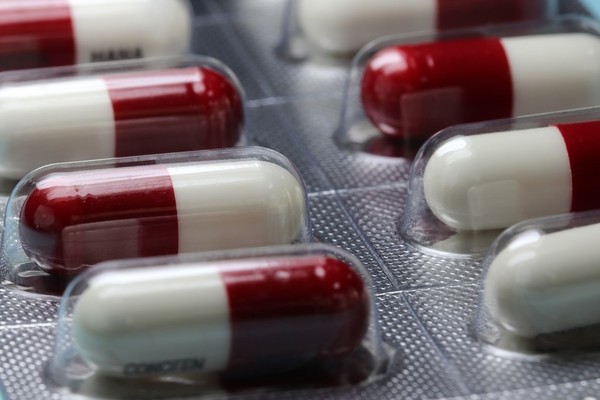MSD released positive results from a phase 3 study of molnupiravir, an investigational pill to treat Covid-19, drawing attention from the pharmaceutical market.
On Tuesday, Kyobo Securities published a monthly report to explain the meaning of the launch of Covid-19 oral treatments.

Kim Jeong-hyeon, a researcher at Kyobo Securities who wrote the report, said oral treatments aim to treat outpatients with mild symptoms or prevent infection in those exposed to the virus.
He said that patients could take oral treatments more easily and conveniently than intravenous injections, and oral treatments cost only one-third of antibody treatments. Also, oral treatments are antiviral drugs that inhibit the proliferation of the virus, he added.
Before working on oral treatments, drug companies developed various antibody therapies. However, some antibody drugs turned unsuccessful. Eli Lilly’s LY-Cov555 (bamlanivimab) raised the market’s anticipation when it won the FDA’s approval for emergency use. Still, the controversy over its efficacy against virus variants led to the nullification of the permit.
Regeneron’s REGN-COV2 and GSK/Vir’s Xevudy (sotrovimab), developed later, showed effectiveness against virus variants and achieved commercial success.
However, the efficacy of these antibody therapies remains controversial.
Kim said in the report that antibody treatments had been developed based on high stability, but there was controversy over their efficacy against virus variants.
He cited the opinion of professor Kim Ho-min at KAIST Graduate School of Medical Science & Engineering, who said, “If the epitope to which the antibody should bind is mutated, the binding force between the antibody and the virus is inevitably reduced.”
Bang Ji-hwan, head of the central infectious disease hospital operations center at the National Medical Center, even said that if the antibody binds ambiguously with a virus variant, it could help the virus penetrate the cells and proliferate, the report noted.
In Korea, Celltrion rolled out intravenous antibody injection Regkirona (legdanvimab). In addition, the company is conducting a phase 1 study to develop an inhaled version of Regkirona in Australia.
On Friday, MSD said the administration of molnupiravir twice a day for five days demonstrated that only 7.3 percent of Covid-19 outpatients were hospitalized, versus 14.1 percent of the placebo group. Molupiravir reduced the risk of hospitalization by half, and no death was reported in the molnupiravir group, MSD said. Based on these results, the company plans to apply for FDA’s emergency use authorization.
Pfizer and Roche are also developing Covid-19 oral treatments. Pfizer began a phase 2/3 trial of PF-07321332 on Sept. 27, and Roche plans to release the results of phase 2 and phase 3 studies of AT-527 within this year.
The Kyobo Securities report said oral treatment developers focused on treating outpatients or preventing Covid-19 infection rather than treating serious cases. MSD discontinued trials on hospitalized patients, and Roche did not announce a phase 3 study plan for hospitalized patients.
The report said this was due to the increased chance of approving a Covid-19 drug for outpatients and those exposed to the virus. In addition, the report noted that Gilead’s sales recently grew rapidly thanks to intravenous injection remdesivir.
Just as Roche helped fight the 2009-2010 swine flu by releasing the oral treatment Tamiflu, the industry is paying attention to whether an oral treatment can help overcome the Covid-19 pandemic, the report added.

